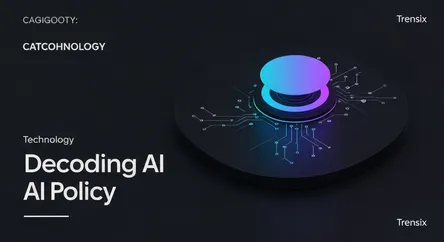Technology
Decoding AI Policy

Explore what AI policy is, why it's a major global focus, and how new regulations are shaping the future of artificial intelligence for everyone.
What is it?
AI Policy refers to the laws, regulations, and guidelines established by governments and organizations to govern the development and deployment of artificial intelligence. It addresses the societal, ethical, and economic impacts of AI. Key areas include data privacy, algorithmic transparency, accountability for AI-driven decisions, national security, and strategies for promoting innovation while mitigating risks. These frameworks aim to create a structured environment where AI technology can be developed and used responsibly and safely.
Why is it trending?
AI is advancing at an unprecedented pace, with tools like generative AI becoming widely accessible. This rapid adoption has brought potential risks to the forefront, including job displacement, misinformation, and algorithmic bias. Consequently, governments worldwide are racing to create guardrails. International summits and new legislation, like the EU's AI Act, are making headlines as nations collaborate and compete to define the rules for this transformative technology, ensuring it aligns with human values.
How does it affect people?
AI policy directly impacts daily life by shaping how technology interacts with society. It influences how your personal data is used by AI systems, sets fairness standards for AI in hiring and credit scoring, and establishes safety protocols for autonomous vehicles. Effective policies aim to protect citizens from harm, ensure accountability when AI systems fail, and build public trust. Ultimately, these rules determine whether AI evolves into a tool that benefits all of society or one that exacerbates existing inequalities.